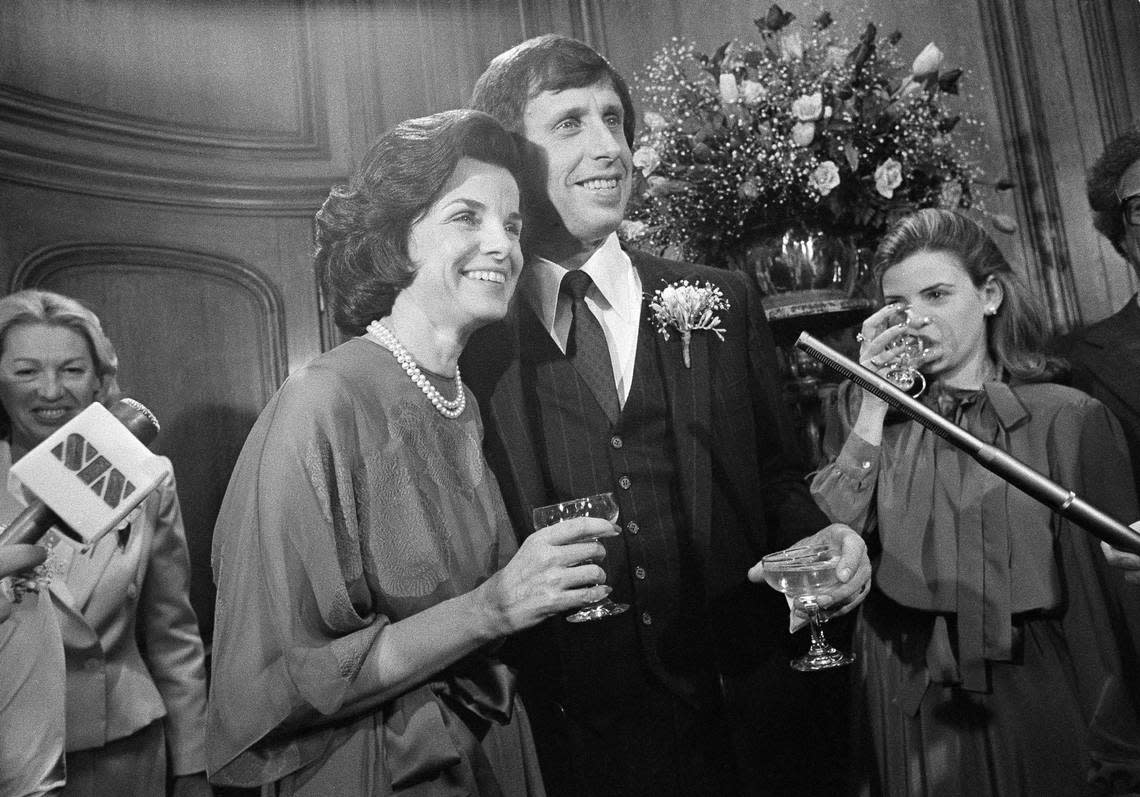From San Francisco mayor to U.S. senator: Highlights of Senator Dianne Feinstein’s career

- Oops!Something went wrong.Please try again later.
- Oops!Something went wrong.Please try again later.
- Oops!Something went wrong.Please try again later.
- Oops!Something went wrong.Please try again later.
- Oops!Something went wrong.Please try again later.
- Oops!Something went wrong.Please try again later.
Sen. Dianne Feinstein died Friday. Here are the some of her most notable moments:
1969: After becoming active in prison issues, Feinstein wins a seat on the San Francisco Board of Supervisors in 1969.
1978: Becomes acting mayor of San Francisco after Mayor George Moscone and Councilman Harvey Milk are assassinated by former Supervisor Dan White. A year later, she won her first full term, becoming the city’s first woman to be elected mayor. Feinstein would serve another term and survive a 1983 recall attempt.
1984: Helps bring the Democratic National Convention to San Francisco and is seriously considered for the party’s vice presidential nomination by presidential nominee Walter Mondale. The slot went to New York Rep. Geraldine Ferraro, the first woman to run on a major party ticket.
1992: Wins a Senate seat, the first woman from California to do so. Five other women, including California’s Barbara Boxer, were elected to the Senate that year, often called the “Year of the Woman”
1993: She’s now a member of the Senate Judiciary Committee, reeling from the 1991 Clarence Thomas-Anita Hill battle two years earlier over Hill’s charges of sexual harassment. The committee at the time had no women.
1994; President Bill Clinton signs into law legislation that includes the Feinstein-led 10-year ban on assault weapons.
1996: A strong gay rights advocate, Feinstein is one of 14 senators to vote against the Defense of Marriage Act, which barred same-sex marriages. Years later, she co-sponsored the law that repealed the act.
2009: Becomes the first woman to chair the Senate Intelligence Committee. Five years later, the panel would issue a blistering 6,700 page report on the CIA’s “enhanced interrogation techniques.”
2017: Becomes the first woman to be top Democrat on the Senate Judiciary Committee.
2020: Stirs controversy after the highly partisan hearing on Supreme Court nominee Amy Coney Barrett, when she calls the session “one of the best set of hearings that I’ve participated in,” and hugs Chairman Lindsey Graham, R-S.C., and thanks him.
2023: Announces she will not seek another term, and is absent from the Senate for nearly three months as she recovers from shingles and other ailments.

